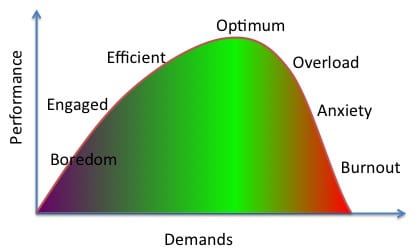- What We DoMenuMenuMenuMenu
- Who We Are
- Publications
- Testimonials
- Contact Us
Menu

With shocking speed last year we fell into this major downturn in the oil patch in western Canada and economically worldwide. There’s no bounce back in sight and most companies are assuming this one is “lower for longer”. Capital projects have been cancelled and jobs and budgets have been drastically cut. The Petroleum Human Resources Council just reported that 53 per cent of oil industry organizations surveyed are decreasing their workforce. Announcements of hundreds more lost jobs at energy companies were in the news earlier this year and are appearing again. This means many companies have to work harder to sustain business results and achieve more with fewer people. Maybe it feels like we’ve been here before, but this time the challenges are more difficult than ever.
Executives, managers and employees race through their days reactively, struggle with information overload, spend hours in ineffective meetings, drown in emails and shoulder the burden of ever-increasing demands.
Why? Both life and work are moving at a faster pace and dealing with higher volumes of tasks that leave most people whirling through a maelstrom of busyness. Being overwhelmed has become a nasty, unavoidable habit. Executives, managers and employees race through their days reactively, struggle with information overload, spend hours in ineffective meetings, drown in emails and shoulder the burden of ever-increasing demands. In this stressful state, we lose our balance, our energy is sapped and we slip into survival mode, where fight, flight or freeze seem like our only options. When we are in this mode, we can kiss productivity goodbye.
The figure below shows how the Yerkes-Dodson stress law affects human performance.

They say, “When you’re talking about either physical or mental performance, we all need some stress to motivate us to perform well. But too much stress will hamper our ability to perform.” So this means as stress increases, performance levels also increase for a while because this is good stress, just like good cholesterol. But if stress levels are too high, this causes our performance and ability to cope to deteriorate and can block our arteries like bad cholesterol does. Everyone has a different optimum stress level and once we surpass it, performance and well being declines. “The resulting frustration, fear of failure and fear of the consequences of poor performance can lead to all sorts of psychological issues from irritability and absenteeism, to problems at home, breakdowns and substance abuse. In a business, it can also lead to high turnover rates, which is one of the biggest problems facing independent advisory firms today.”
Many of us respond to increasing workloads and higher demands by putting in longer hours. But this takes its toll mentally, physically and emotionally. Yet we see no other way of getting everything done. Aware of our tiredness, irritability and the stress that people feel, managers and employees alike may be far less in tune with their decline in engagement and motivation, the increasing tendency to become distracted and the inexorable deterioration in work quality and quantity, which is the opposite of our intentions.
Everyone has a different optimum stress level and once we surpass it, performance and well-being declines.
How can we all break out of this unsustainable way of working and create a much healthier state of higher energy, enthusiasm, engagement, motivation and productivity without burning the midnight oil and forgetting the names of our kids?
The first step is to notice where you are on the stress curve. The context to use is your whole life, not just your job. Get real with yourself and pay attention to your overall state. An objective look at your current mindset and how you’re coping is a great start. If your stress is overwhelming you, just by paying attention and noticing what’s really going on for you is actually the first step in changing it for the better.